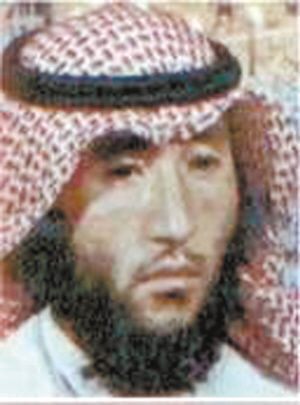 |
|
Abdul Haq [File photo] |
Beijing Tuesday welcomed Washington's move to slap sanctions on the leader of the Eastern Turkistan Islamic Party (ETIP), saying fighting the terror group is in the interest of both countries.
Washington on Monday imposed financial sanctions on Abdul Haq, the ETIP leader alleged to have tried to carry out attacks in the run-up to and during last year's Beijing Olympics.
The US Treasury Department released an online statement announcing the sanctions on Haq, a Xinjiang native. He has been on the Chinese police list of most wanted terrorists since October last year.
Foreign Ministry spokeswoman Jiang Yu told a regular briefing that "combating the ETIP is an important part of the global effort to fight terrorism. It is in the interest of not only China, but also the international community, including the US".
The sanctions mean that Haq's bank accounts or other financial assets in the US are frozen. Americans also are barred from doing business with him.
"Haq commands a terror group that sought to sow violence and fracture international unity at the 2008 Olympic Games," Stuart Levey, the Treasury Department's undersecretary for terrorism and financial intelligence, said in the statement.
Washington earlier branded the ETIP a terror group and said it supported Al-Qaida.
The Treasury statement said that in early 2008, Haq directed ETIP's military commander to attack various Chinese cities, focusing on those scheduled to hold Olympic events.
"Under Haq, trained terrorists planned to sabotage the Olympic Games by conducting terrorist attacks within China before the Olympics began," the department said.
It also said that Haq "raised funds, recruited new members and further developed the terrorist organization".
Since late 2007, the statement said, Haq has sent terrorists to the Middle East to raise funds and buy explosive materials for terrorist attacks against Chinese targets outside China.
Haq became the leader of ETIP following the killing of Hasan Mahsum, founder of the group, by the Pakistani army in October 2003. As of 2005, Haq was also a member of Al-Qaida's Shura Council.
Washington's move signals that US President Barack Obama's administration will pursue more multilateral cooperation in fighting terrorism, instead of going it alone, said Professor Li Wei, director of the anti-terrorism research center at the China Institute of Contemporary International Relations.
(China Daily April 22, 2009)